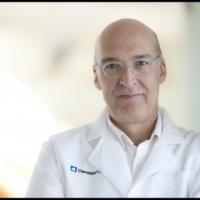Wine and the Rheumatologist Save
“Wine is one of the most civilized things in the world and one of the most natural things of the world that has been brought to the greatest perfection, and it offers a greater range for enjoyment and appreciation than, possibly, any other purely sensory thing.” ― Ernest Hemingway
“Wine is the most healthful and most hygienic of beverages.” ― Louis Pasteur
Several months ago, Jack Cush asked if I would be interested in writing a blog post on wine and rheumatology. My immediate response was “yes!”; however, in the cool moments before actually starting to write this, I quickly realized I did not have a clue as to what it should be about. I believe I was asked because I am a guy who likes wine, which is really the only qualification needed for such an endeavor. Liking wine however, got me no closer to my first column.
Wine and the rheumatologist in theory could be about a lot of things. Naturally, as rheumatologists, we are interested in how wine may affect rheumatic diseases. On this aspect I am no expert, but a quick PubMed search revealed a lot of semi-interesting work on how alcohol influences risk for certain rheumatic diseases such as RA and OA, or how certain chemical components of wine, such as resveratol (found in reds) may be naturally anti-inflammatory. The study in question involved rabbits and intra-articular injections and no drinking of wine. Go figure. While this aspect of wine and rheumatology may have “legs”, it’s not very exciting to me but I will keep an eye out and try to keep an open mind.
I am more inclined to write about how our community interacts around and enjoys wine. On this subject, I humbly hold street credibility. I am aware of an august group of rheumatologic oenophiles who meet annually during the ACR annual meeting for a wine dinner where invitees bring special selections to share, and where some epic wines have been consumed. I know personally of a group of rheumatologists who exploit their visits to EULAR, which meets so often in the great wine-producing countries of the world, taking a day out for wine touring and comraderie. I am also aware of a certain long-standing official within the ACR who is a very serious wine guy and who certainly has some great stories to share. Accordingly, I am confident there are many other rheumatologists, advanced practitioners and others in our field that gather and commute with each other in settings where wine is not an accessory but an integral part of the activity.
I will take my inspiration for this blog from the Wine and Spine Society, informally founded by the late and legendary spinal surgeon Henry Bohlman who practiced in Cleveland and was a professor at Case Western Reserve University. I knew Henry a bit and asked him about the ‘society’ and how it worked. He told me there were two essential requirements for membership: you had to have a spine and like wine. That I could understand.
So I will conclude this first blog with a shout out to all rheumatologists who like wine and may even drink it on occasion, to write to me about their wine experiences including groups who might get together over wine, travel over wine, collect wine or have some take on how wine may influence rheumatic diseases. I will attempt to interview prominent rheumatology enophiles and learn why they live this way, why and how they collect, how they started, etc. This blog series will be fun and devoid of wine snobbery.
My dream is a rheum wine society - formal or informal - that meets throughout the country to recognize the value of wine in life and celebrate it. Perhaps one day we can organize a major wine auction (a long time dream of mine) to benefit research and education in rheumatology.
ACTION ITEM: Please send me ideas, stories, or opportunities for me to interview you about rheum/wine events (calabrl@ccf.org). I will buy you a glass.
Dr. Calabrese wishes to disclose he may have a bottle or two of wine at home for ongoing research.










If you are a health practitioner, you may Login/Register to comment.
Due to the nature of these comment forums, only health practitioners are allowed to comment at this time.